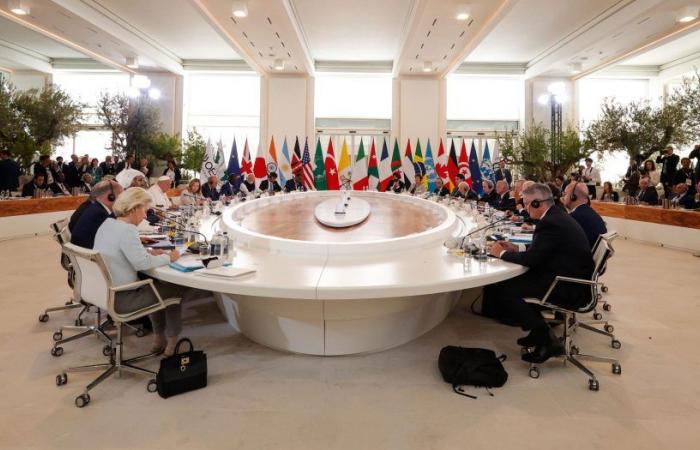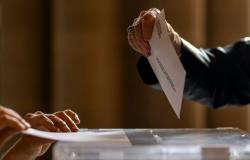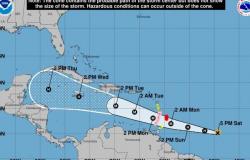This Pope is not intimidated by novelties, innovations or the breaking of certain taboos around this phrase: “That has never been done before.” He just proved it again attending for the first time a meeting of the G7, the institution that brings together the seven richest and most powerful Western democracies. No other pontiff had done so before.
Everything was forged a few months ago, when the president of the Council of Ministers of Italy, Giorgia Meloni issued an official invitation to Francis to participate in the G7 meeting that was going to take place on June 14 and 15 in the town of Borgo Egnazia. (Apulia region), andbecause Italy holds the current presidency. Jorge Mario Bergoglio gave his agreement when he learned that the topic that was going to be discussed was artificial intelligence, which, as is known, is among his greatest concerns. Meloni made the official announcement, stressing that the participation of such an illustrious guest was an honor for Italy.
At ten thirty in the morning on Friday, June 14, the Italian Aeronautics helicopter took off from the Vatican heliport heading to the south of the peninsula. Traveling with the Holy Father were the regent of the prefecture of the Papal Household, Father Leonardo Sapienza, and a very restricted entourage. The duration of the flight was an hour and a half and, at 12:10 p.m., it landed on a sports field of the luxurious hotel where the G7 summit was taking place.
Bilateral meetings
President Meloni came to receive the Pope, and both took a seat in an electric stroller that took them to the venue where the work meetings took place. Without wasting time, the Pontiff began the planned series of bilateral meetings. The first to be received was the general director of the IMF (International Monetary Fund), Georgieva Kristalina, who was succeeded by the president of Ukraine, Volodymyr Zelensky, with whom Bergoglio melted into a warm embrace.
They then met with the Pope the French president, Emmanuel Macron, and the prime minister of Canada, Justin Trudeau; meetings, all of which were not very long, but in which important current international issues were addressed. In the case of the French president, concern about the rise of the extreme right in the European elections would surely be present.
The next stage began late in the morning in the Arena Room, where the plenary session took place. Bergoglio took a seat in the middle of one of the two wings of the large oval table occupied by all the political and economic personalities. present at this summit, extended to numerous heads of State and Government.
Upon taking the floor, Francisco began his speech anticipating that he had two versions of it, one long and one shorter. He decided to read only the latter, in which he described artificial intelligence as “a fascinating and tremendous instrument; As we know, it is an extremely powerful instrument which is used in numerous areas of human activity: from medicine to the world of work, from culture to the field of communication, from education to politics.”
“The magnitude of these complex transformations – he observed – is obviously linked to the rapid technological development of artificial intelligence itself.” “It is precisely this powerful technological advance that makes artificial intelligence a fascinating and tremendous instrument at the same time and requires reflection commensurate with the situation,” said Francisco. Along these same lines, he pointed out that “The benefits or harms it entails will depend on its use.”
Beyond the body
In a speech in which bioethics was merged with the philosophy and technical aspects of the issue at hand, the Bishop of Rome explained that “we live in a condition of ulteriority with respect to our biological being; we are beings inclined towards outside-of-ourselves; indeed, radically open to the beyond.” And it is at this point where he delved into the religious factor: “This is where our openness to others and to God originates; From here comes the creative potential of our intelligence in terms of culture and beauty; From here, finally, our technical capacity originates. Technology is thus a trace of our ulteriority.”
From there, he claimed that any progress, whatever the matter, must be put “at the service of the brothers and sisters and the common home; and this does not always happen.” He posed it with an added warning: “Not infrequently, precisely thanks to his radical freedom, humanity has perverted the goals of its own being, becoming an enemy of itself and the planet”. For this reason, Francis determined that, “only if their vocation to the service of humanity is guaranteed, will technological instruments reveal, not only the greatness and unique dignity of the human being, but also the mandate that the latter has received to ‘cultivate and take care of the planet and all its inhabitants.”
Human control
Delving into artificial intelligence, which he presented as “an even more complex instrument” and which he came to define as a “sui generis tool,” he provided an interesting reflection. “What the machine does is a technical choice between several possibilities and is based on well-defined criteria or statistical inferences,” he asserted, and then pointed out that “the human being, on the other hand, not only chooses, but, in his heart, is capable of deciding.” “For this reason, in the face of the wonders of machines, which seem to know how to choose independently, we must be very clear that the decision always corresponds to the human being, even with the dramatic and urgent tones with which it is sometimes presented in our life”, warned the Successor of Peter.
“Precisely on this topic – pay attention to this paragraph, which has been the headline of numerous articles, including the front page of L’Osservatore Romano – let me insist that, in a drama like that of armed conflicts, it is urgent to rethink the development and use of devices such as so-called ‘lethal autonomous weapons’ to prohibit their use, starting now with an effective and concrete commitment to introduce increasingly greater and significant human control.” “No machine should ever choose to end the life of a human being”he declared, leaving no room for doubt.






